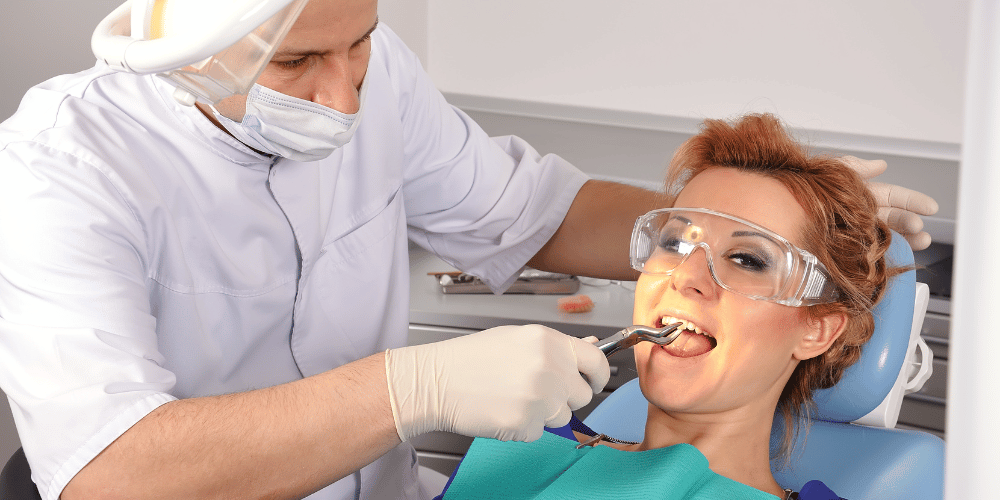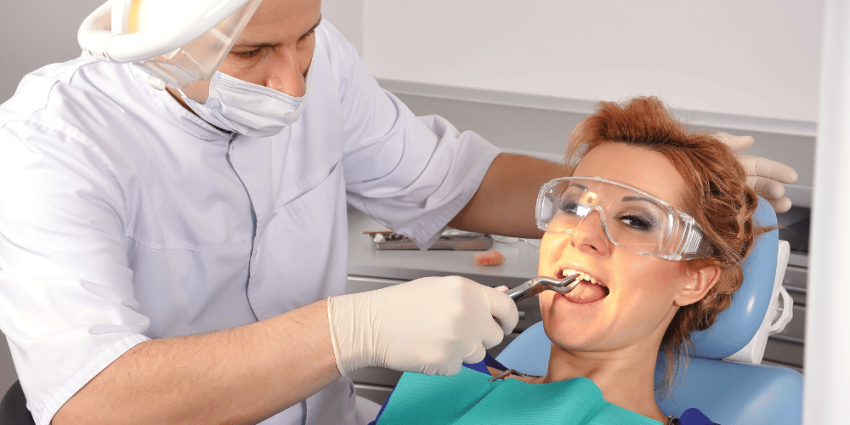Painful infections can happen at any time, and they can be especially uncomfortable when they affect your teeth. If you’re suffering from an infection in one of your teeth, it’s important to know whether or not a dentist can pull the infected tooth. The answer is yes—a dentist can pull an infected tooth as long as the infection has not spread to other areas of your mouth or body. In this article, we will discuss what infections are, how a dentist can diagnose them, and how they decide if pulling the tooth is the best option. We’ll also provide tips on how to prevent these infections from happening in the first place. Read on to learn more!
When it comes to addressing an infected tooth, you’ll likely first consider whether the tooth can be saved.
There are a few things that your dentist will take into consideration when trying to save an infected tooth. The first is how far the infection has spread. If the infection has only reached the root of the tooth, then it may be possible to save the tooth. However, if the infection has spread to the surrounding bone or tissue, then it is likely that the tooth will need to be extracted.
The second thing that your dentist will consider is what is causing the infection. If the cause of the infection is something that can be treated, such as a cavity, then your dentist may be able to save the tooth. However, if the cause of the infection is something more serious, such as an abscessed tooth, then extraction is likely the best option.
The third thing that your dentist will consider is your overall oral health. If you have good oral hygiene and see your dentist regularly, then your chances of saving an infected tooth are much higher than if you have poor oral hygiene or rarely see a dentist.
Ultimately, whether or not an infected tooth can be saved depends on a number of factors. If you are concerned about an infected tooth, make sure to schedule an appointment with your dentist as soon as possible so that they can assess the situation and give you the best treatment options.

If a tooth is so badly damaged or decayed that a root canal just won’t do, your dentist will probably recommend extraction.
If a tooth is so badly damaged or decayed that a root canal just won’t do, your dentist will probably recommend extraction. This is a last resort option, as it involves removing the tooth entirely. However, if the tooth is causing pain or infection, it may need to be removed.
Your dentist will numb the area and use forceps to remove the tooth. Depending on the degree of damage, they may need to cut away some gum tissue or bone. After removal, your dentist may place a stitch in the gum to help it heal properly.
In some cases, your dentist may recommend an immediate dental implant after extraction. This is done for aesthetic purposes or to prevent adjacent teeth from shifting out of place. Depending on your particular case, you may need a waiting period before an implant can be placed.
If you need to have a tooth extracted, make sure to follow all instructions provided by your dentist for proper care and healing.
An infected or abscessed tooth is usually a tooth that has some sort of deep cavity or trauma.
An infected or abscessed tooth is a tooth that has suffered some sort of deep cavity or trauma. This can lead to the development of an infection, which can be very painful. In some cases, the infection can even spread to other parts of the body. If you think you may have an infected or abscessed tooth, it’s important to see a dentist right away so that they can determine the best course of treatment.
Once the tooth has been removed, the infection will slowly begin to subside.
Once the tooth has been removed, the infection will slowly begin to subside. This is because the tooth is no longer there to harbor the bacteria and provide a source of food for the infection. The area around the extraction site may be sore for a few days, but this is normal and will resolve on its own. If you have any concerns, be sure to follow up with your dentist or oral surgeon.
If you have any pain or sensitivity during this time, take over-the-counter medications like ibuprofen or acetaminophen as directed on the package.
If you are experiencing any pain or sensitivity during this time, it is important to take over-the-counter medications like ibuprofen or acetaminophen as directed on the package. This will help to reduce any discomfort you may be feeling. It is also important to continue to practice good oral hygiene during this time, including brushing and flossing regularly. If you have any questions or concerns, be sure to contact your dentist.
If you don’t notice any improvement in your symptoms after a few days, then you should call your dentist and make an appointment to be seen.
If you have an infected tooth, it’s important to get it treated as soon as possible. However, if you don’t notice any improvement in your symptoms after a few days, then you should call your dentist and make an appointment to be seen.
Dental infections can lead to serious complications if they’re not treated promptly, so it’s important to call your dentist right away if you’re not seeing any improvement.

Your oral health can sometimes seem like a daunting and challenging task, but with the right care and maintenance routine, these problems can be avoided!
When it comes to your oral health, you may sometimes feel like it’s a daunting and challenging task to keep up with. However, by following a few simple tips and maintaining a good oral care routine, you can avoid many of the problems that can arise. Here are a few things to keep in mind:
Brush and floss your teeth regularly. This will help remove plaque and bacteria from your teeth and gums, which can lead to cavities and gum disease.
See your dentist for regular checkups and cleanings. This will allow your dentist to catch any problems early on and provide you with the necessary treatment.
Avoid tobacco products. Smoking or using other tobacco products can increase your risk for developing gum disease, tooth decay, and other oral health problems.
Eat a healthy diet. A balanced diet that includes lots of fruits, vegetables, and whole grains can help keep your teeth and gums healthy. Avoid sugary snacks and drinks, as they can contribute to tooth decay.
By following these simple tips, you can help maintain good oral health and avoid many common problems. If you have any concerns about your oral health, be sure to talk to your dentist about them.
Conclusion
In conclusion, yes, a dentist can pull an infected tooth. However, it is important to consider all available options before making this decision. It may be possible to save the infected tooth with root canal treatment or antibiotics instead of extraction. It is also important to note that while dentists are capable of pulling teeth safely and effectively, they should not do so unless absolutely necessary due to the potential risks associated with such a procedure. Always consult your dentist for advice on whether or not extraction is the right option for you in your particular situation.










Leave a Reply